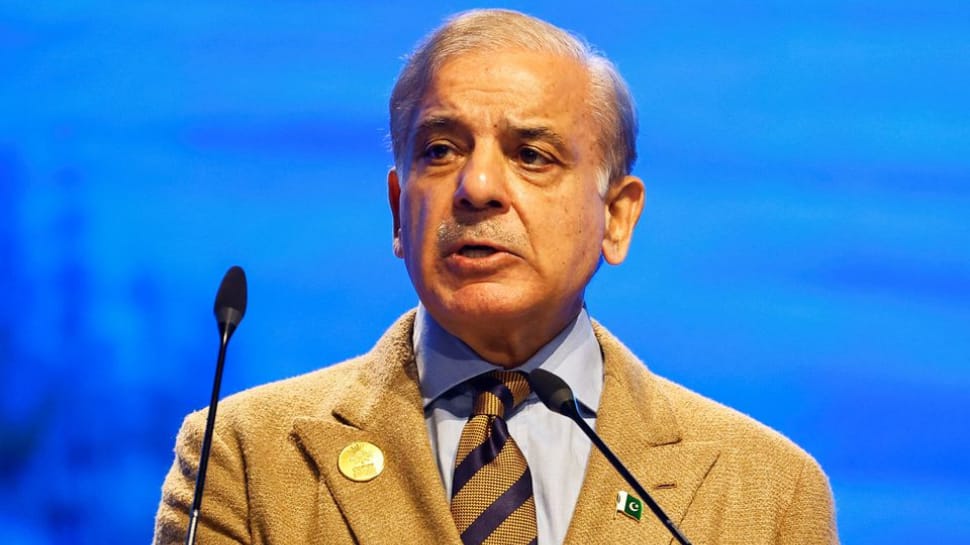Pakistan Economic Crisis: ‘We are Living in a Bankrupt Country’, Says Defence Minister

New Delhi: Amid cash-starved Pakistan struggling to grapple with the economic crisis, the country’s Defence Minister on Saturday (February 18, 2023) said that the nation has “already defaulted”. Addressing a ceremony in his home town Sialkot, Khawaja Asif blamed the establishment, bureaucracy and politicians for the prevailing economic crisis. He said that standing on its own feet was crucial for Pakistan to stabilise itself.
“You must have heard that Pakistan is going bankrupt or that a default or meltdown is taking place. It (default) has already taken place. We are living in a bankrupt country,” Asif was quoted as saying by the news agency PTI.
The solution to our problems lies within the country, he said and added that the IMF does not have the solution to Pakistan’s problems.
Defence Minister of Imported govt admits that Pakistan is already in default. In 10 months they have brought Pak to this sorry state – Shameless lot selling out the country & holding on to power instead of letting nation choose their ldrs thru elections. pic.twitter.com/IHbREnbAhK
— Shireen Mazari (@ShireenMazari1) February 18, 2023
He said that everyone including the establishment, bureaucracy and politicians are to blame for the current economic mess as the law and Constitution are not followed in Pakistan.
Pakistan economic crisis: Cash-strapped nation’s weekly inflation rise to 38.4 per cent
Meanwhile, the yearly inflation hit a new high of 38.42 per cent in the outgoing week in Pakistan as the trend of the hike in the prices of essential commodities continued to rise.
The rise came on the back of new taxes imposed and an increase in the petroleum prices by the Shehbaz Sharif-led government to fulfil the demand of the International Monetary Fund (IMF) before releasing USD 1.1 billion dollars under an already agreed USD 7 billion deal.
The Sensitive Price Index (SPI), used to measure short-term inflation, rose to 38.42 per cent on a year-on-year (YoY) basis in the outgoing week, news agency PTI reported, quoting the latest data of the Pakistan Bureau of Statistics.
During the outgoing week, the prices of 34 items increased, five were reduced and 12 remained unchanged. The rising prices affected the group with a monthly income from Rs 29,518 to Rs 44,175 the most with an inflation impact of 39.65 per cent.
On a weekly basis, the SPI increased by 2.89 per cent in comparison with the rise of 0.17 per cent in the previous one.
In the previous week, the SPI inflation on a yearly basis was recorded at 34.83 per cent.
The increase in the prices is attributed to the hike in fuel prices announced by the government. This, in turn, caused the prices of essential items to jack up.
The SPI is used to gauge the prices of 51 essential items based on a survey of 50 markets in 17 cities in the country.
A weekly rise was seen in the prices of petrol by 8.82 per cent, five litres of cooking oil by 8.65 per cent, one kg of ghee by 8.02 per cent, chicken meat by 7.49 per cent, and diesel by 6.49 per cent.
A week-on-week (WoW) decline was seen in the price of tomatoes by 14.27 per cent. This was followed by a reduction in the price of onions by 13.48 per cent on a weekly basis. Similarly, the price of eggs went down by 4.24 per cent, garlic by 2.1 per cent, and flour by 0.1 per cent on a WoW basis.
The highest YoY basis increase was witnessed in the price of onions which went up by 433.44 per cent. This was followed by chicken meat, the price of which jacked up by 101.86 per cent on a yearly basis. Diesel became expensive by 81.36 per cent and eggs by 81.22 per cent on a YoY basis.
The items the prices of which were reduced on a YoY basis included tomatoes by 65.3 per cent and chilli powder by 7.42 per cent.
According to the statistics of the week under review, the inflation rate for the group with income of up to Rs 17,732 per month on an annual basis was 35.01 per cent. For the group with income from Rs 17,733 to Rs 22,888 per month, the inflation rate stood at 36.53 per cent.
Similarly, for the group having income from Rs 22,889 to Rs 29,517 per month, the inflation came to 38.43 per cent. For those having an income from Rs 29,518 to Rs 44,175 per month, the inflation rate was 39.65 per cent — the highest in terms of impact.
The rate of inflation has been 39.41 per cent for the group having a monthly income of more than Rs 44,176.
Pakistan authorities during the outgoing week shocked the people by imposing new taxes to raise Rs 170 billion through a mini-budget bill. The unprecedented inflation has hit every household.
(With agency inputs)





